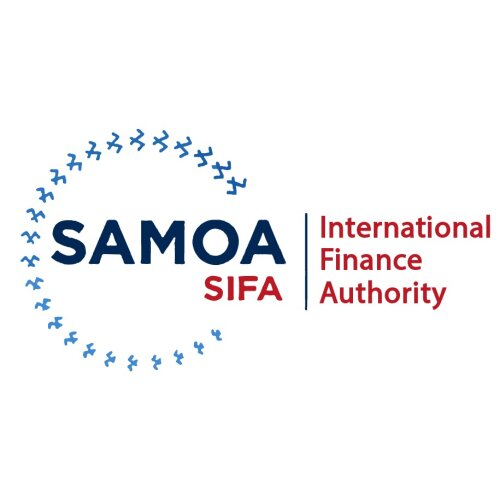Best Renewable & Alternative Energy Lawyers in Apia
Share your needs with us, get contacted by law firms.
Free. Takes 2 min.
List of the best lawyers in Apia, Samoa
About Renewable & Alternative Energy Law in Apia, Samoa
Renewable and alternative energy law in Apia, Samoa is a growing field that supports the sustainable development of the country’s energy sector. Samoa’s government has made significant commitments to increase the use of renewable sources, such as solar, wind, hydro, and biomass, to reduce reliance on imported fossil fuels, lower greenhouse gas emissions, and create a resilient energy future. Legal frameworks have been put in place to encourage investment in clean energy, regulate industry practices, and ensure that environmental and social impacts are managed appropriately. Anyone interested in generating, distributing, or using renewable energy in Apia should understand the relevant laws, regulations, and opportunities available.
Why You May Need a Lawyer
Engaging in renewable or alternative energy projects often involves navigating a complex web of legal requirements. In Apia, you may need a lawyer in the following situations:
- Setting up a renewable energy business or project and ensuring compliance with permits and licensing requirements.
- Understanding contracts related to power purchase agreements or government incentives.
- Addressing land ownership or land use issues that may affect energy development projects.
- Resolving disputes with utility companies, government agencies, or partners.
- Protecting intellectual property in new energy technologies.
- Ensuring environmental and social impacts are assessed and managed in accordance with local laws.
- Seeking advice on available grants, tax breaks, or other incentives for renewable energy.
Legal expertise can help you avoid penalties, maximize benefits, and achieve successful outcomes in renewable and alternative energy ventures.
Local Laws Overview
Renewable and alternative energy in Apia, Samoa is governed by several important laws and policies, including:
- Electricity Act 2010 - This law regulates the production, transmission, distribution, and supply of electricity, with special consideration for renewable energy sources.
- National Energy Policy and Energy Sector Plan - Samoa’s policy outlines targets for increasing the share of renewables in the national energy mix and provides guidance for project development and private sector participation.
- Environmental Management and Conservation Act 2013 - Any renewable energy project must follow environmental assessment procedures to protect Samoa’s natural resources.
- Land Laws - Land tenure in Samoa can be complex, involving customary, freehold, and government land. Proper legal advice is needed for obtaining and using land for energy projects.
- Licensing Requirements - Any commercial energy activity must be licensed by authorities such as the Electric Power Corporation (EPC) and relevant ministries.
Familiarity with these key aspects is crucial to operate successfully within the renewable energy sector in Apia.
Frequently Asked Questions
What types of renewable energy are common in Apia, Samoa?
Samoa has invested in solar, hydro, and wind energy projects, with solar energy being the most popular due to the country’s climate.
Do I need a permit to install solar panels at my home or business?
Yes, installing solar panels may require a permit from local authorities and must meet the standards set by the Electric Power Corporation.
Can foreign investors participate in renewable energy projects in Samoa?
Foreign investors are welcome but must comply with local laws, investment regulations, and may need local partnerships depending on the project.
What incentives are available for renewable energy projects in Apia?
The government offers various incentives, including grants and potential tax exemptions, particularly for projects that help meet national energy targets.
Is environmental impact assessment required for renewable energy projects?
Yes, larger projects must undergo an environmental impact assessment as mandated by the Environmental Management and Conservation Act.
Can I sell excess electricity generated from my renewable system back to the grid?
Subject to licensing and approval by the Electric Power Corporation, some programs allow the sale of surplus energy to the national grid.
How are land issues handled for renewable energy development?
Land use is complicated by customary ownership in Samoa. Legal assistance is recommended to secure proper rights and necessary agreements.
What should I include in a power purchase agreement?
Power purchase agreements should clarify terms of sale, pricing, delivery, duration, and dispute resolution. Legal review is recommended before signing.
Are there specific safety standards for renewable energy installations?
Yes, there are technical and safety standards that all new installations must meet to ensure reliability and protect public safety.
Who regulates the renewable energy sector in Apia?
The primary regulator is the Electric Power Corporation, along with oversight from the Ministry of Works, Transport, and Infrastructure, and other relevant bodies.
Additional Resources
For more information or guidance, consider reaching out to the following organizations and resources:
- Electric Power Corporation (EPC) - The national authority on electricity supply, standards, and regulation in Samoa.
- Ministry of Natural Resources and Environment (MNRE) - Responsible for environmental protection and management of environmental permits.
- Ministry of Works, Transport, and Infrastructure - Involved in energy policy and infrastructure developments.
- Chamber of Commerce - Provides support for businesses, including those in the renewable energy sector.
- Local Law Firms - Many firms have expertise in energy law and can assist with legal advice and representation.
Next Steps
If you are considering involvement in a renewable or alternative energy project, or if you have encountered a legal issue in this field, take the following steps:
- Gather and review all relevant documents and project information.
- Identify which areas of law or regulation may apply to your situation.
- Contact an experienced lawyer or legal advisor specializing in renewable and alternative energy law in Samoa.
- Consult with the appropriate government authorities for guidance on licensing, permits, and compliance.
- Utilize resources like the EPC, MNRE, and the Chamber of Commerce for additional support and information.
Early engagement with legal professionals can save time, reduce costs, and help you confidently navigate the renewable and alternative energy sector in Apia, Samoa.
Lawzana helps you find the best lawyers and law firms in Apia through a curated and pre-screened list of qualified legal professionals. Our platform offers rankings and detailed profiles of attorneys and law firms, allowing you to compare based on practice areas, including Renewable & Alternative Energy, experience, and client feedback.
Each profile includes a description of the firm's areas of practice, client reviews, team members and partners, year of establishment, spoken languages, office locations, contact information, social media presence, and any published articles or resources. Most firms on our platform speak English and are experienced in both local and international legal matters.
Get a quote from top-rated law firms in Apia, Samoa — quickly, securely, and without unnecessary hassle.
Disclaimer:
The information provided on this page is for general informational purposes only and does not constitute legal advice. While we strive to ensure the accuracy and relevance of the content, legal information may change over time, and interpretations of the law can vary. You should always consult with a qualified legal professional for advice specific to your situation.
We disclaim all liability for actions taken or not taken based on the content of this page. If you believe any information is incorrect or outdated, please contact us, and we will review and update it where appropriate.











